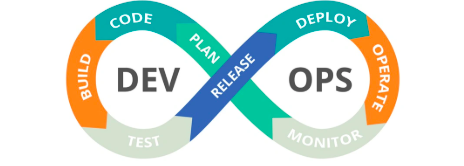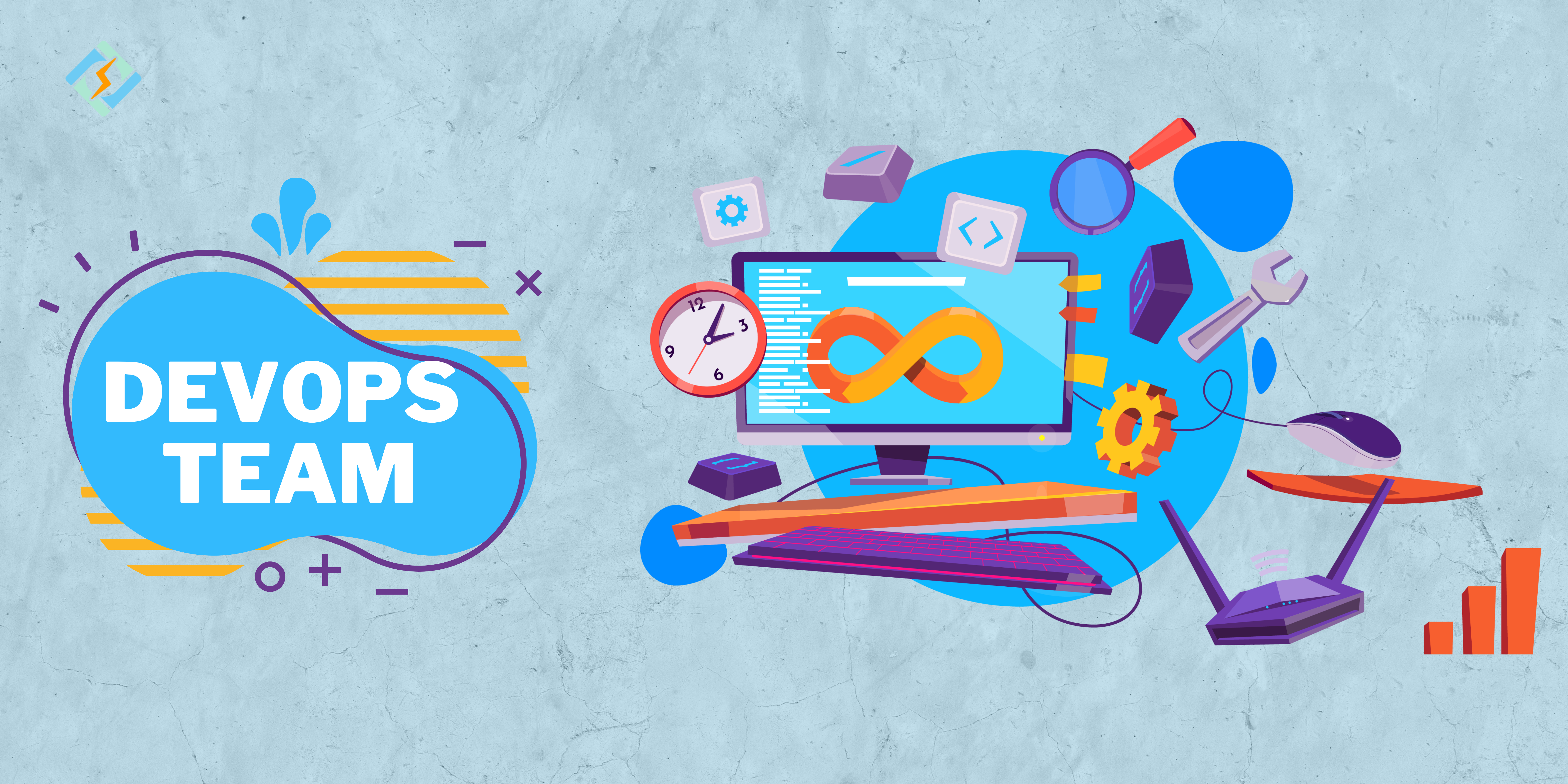As businesses grow they’re under constant stress to deliver high-quality software services daily. Now enter DevOps teams! A solution that has now become the backbone of our modern DevOps infrastructures.
DevOps isn’t a one-size-fits-all approach. It’s about enhancing how your team operates during software development. In DevOps, the development and operations teams collaborate to enhance productivity of developers and the reliability of operations.
As of 2025 the demand for efficient and reliable DevOps teams is only growing, startups or established IT firms have realized the importance of streamlined development, quicker deployment cycles, and ongoing innovation. But what exactly does a DevOps team do, what structure, and why it’s so important for your success?
What is DevOps, and Why is it Essential?
DevOps focuses on combining various approaches to speed up the delivery of applications and services. It allows companies to develop and improve products faster than using traditional methods. By automating processes with minimal human intervention, DevOps empowers teams, enhances communication, and leverages technology for effective task automation.

Here’s how DevOps benefits teams:
- More Creativity
- Automates repetitive tasks
- More flexibility and reliability
- More efficient use of resources
- More insight into how the system works
- Quicker fixing of problems with less complexity
- Quicker and improved product delivery
What is the Key Role of a Dedicated DevOps Team?
A well-rounded DevOps team roles should comprise experts with the following skills and roles:
Get exclusive access to all things tech-savvy, and be the first to receive
the latest updates directly in your inbox.
1. DevOps Evangelist
The DevOps Evangelist is in charge of leading and promoting a DevOps culture. They ensure that all DevOps practices and the team’s identity are successful and implemented.
2. Code Release Manager
A Code Release Manager is usually a Project Manager in a DevOps team. They need to know how to manage product and app development and delivery and use smart methods when needed. Their main tasks include overseeing product and app projects from start to finish, monitoring DevOps progress with important metrics, and understanding when to apply agile methods.
3. Automation Architect
Automation Architects design and implement strategies to automate manual tasks, aiming for efficiency. They select and integrate DevOps tools into processes.
4. Experience Assurance
The Experience Assurance Expert is basically in charge of making sure the product is easy to use and looks good for the customer. They’re like the customer’s best friend, making sure everything works right, has all the features it should, and is simple to use.
A DevOps team will then check that all features from the original plan are in the final product and that everything is functional and pleasant for the customer.
5. Software Developer/Tester
The Software Developer is the creator of the product. They write the code, and in a DevOps team, they also do things like test the code in small parts, put it into use, and keep an eye on how it’s doing and if meets the business needs. This job is a bit more significant than the usual developer role, which is mainly about writing code.
6. On-call, incident response, and incident management
DevOps teams, working together, handle emergencies and manage issues. As they respond more to problems, they understand their systems better, leading to improved code and fewer issues.
7. Security and Compliance Engineer
Security engineers take a proactive approach by collaborating closely with software developers right from the start of the product development process, eliminating the need to wait until the final product is built. They ensure the overall security of a product by deploying tools and techniques to detect potential breaches and address them. They’re skilled in programming, research, management/leadership, problem-solving, and communication.
Benefits of Hiring a Dedicated DevOps Team
Hiring good DevOps teams provides modern IT businesses with multiple benefits, such as the following:
- DevOps teams can speed up getting software out there from the start to when it’s ready to use, helping companies stay ahead of the competition.
- Continuous deployment (CD) lets teams quickly and automatically release updates to users. They can also use feature flags to slowly introduce new code, improving speed, efficiency, and the long-term success of software development.
- Keeping an eye on things in real-time and writing down what’s happening ensures the software works well and users have a good experience.
- Using a bunch of small services and writing down the rules for the tech helps the software grow without problems and makes it easier to handle complicated systems without too much risk.
- Having rules that automatically follow and detailed settings helps avoid bugs and weak spots, making users happier and improving the company’s reputation.
Must-Have Technical Skills That Make a DevOps Team Succesful
In 2025, every DevOps team should be proficient in the following technical skills so they can deliver efficiently:

1. Coding and Scripting
Proficiency in programming languages such as Python, Ruby, or Java is imperative for automating tasks and developing tools. Scripting languages, including Bash, play a pivotal role in crafting system administration scripts.
2. Linux Fundamentals
DevOps engineers need to possess a thorough understanding of Linux file systems, permissions, package management, and command-line utilities to adeptly manage server environments.
3. Infrastructure Management
The mastery of tools such as Ansible, Puppet, and Chef is crucial for the provisioning, configuration, and automation of server and networking tasks.
4. System Administration
Proficiency in user management, software installation, and system monitoring is indispensable for ensuring server stability and resolving issues.
5. DevOps Toolchains
The utilization of key tools, including Git for version control, Jenkins for build automation, and Docker/Kubernetes for deployment automation, is fundamental for the development of software delivery pipelines.
6. Cloud Computing
A solid foundation in AWS, Azure, or Google Cloud is essential for the management of scalable and flexible environments. The ability to provision resources, manage services, and optimize costs is of utmost importance.
7. Database and Network Management
Proficiency in database management (for example, MySQL, PostgreSQL) and network configuration ensures the reliability of data and the seamless communication between services.
8. Testing, Security, and Monitoring
Expertise in automated testing, the implementation of security best practices, and the use of monitoring tools such as Prometheus and Grafana is vital for the detection of performance issues and the identification of bugs.
9. Automation
The ability to automate repetitive tasks, including deployment pipelines, infrastructure provisioning, and configuration management, is at the heart of DevOps.
10. Software Testing
The integration of testing methodologies into Continuous Integration/Continuous Deployment (CI/CD) pipelines is crucial for ensuring the quality of code and minimizing the occurrence of bugs.
11. Computer Programming
While not required to be full-time developers, DevOps engineers benefit from a solid understanding of algorithms and design patterns, which aids in writing efficient scripts and troubleshooting.
12. Security
A comprehensive understanding of security best practices, vulnerability assessments, and risk management is essential for protecting applications and infrastructure.
13. Configuration Management
The use of tools such as Ansible, Puppet, and Chef facilitates the consistent deployment of infrastructure, mastering these critical skills.
14. Source Code Management
Proficiency in Git is instrumental in tracking changes, managing repositories, and fostering effective collaboration between development and operations teams.
Soft Skills a DevOps Team Must Have
Besides having all those technical hardcore skills, a DevOps team should also be skilled in the following:
- Interpersonal Skills: DevOps teams need to work well with different teams, be organized, communicate clearly, focus on the customer, solve problems early, and make good decisions
- Familiarity with Agile methods: for keeping up with changes in projects and releasing software more quickly and with better quality
- Being organized: is key for managing tools, scripts, and settings in DevOps.
- Working well with everyone involved, including developers, IT operations, and quality assurance teams, is essential for success
- Making smart decisions: about setting up systems and handling deployments is crucial for efficient and effective DevOps processes.
Conclusion
The DevOps team roles are both critical and dynamic, requiring engineers to have diverse skill sets. By working well together, talking things out, getting the hang of Agile ways of working, and always looking for solutions before problems even happen, these skills help the DevOps teams make development smoother, make deploying things better, and make sure customers are happy.
By mixing their tech skills with a focus on what customers want and working well with the team, DevOps folks push for new ideas and keep their systems strong and working well.
As the industry keeps changing, getting skilled will help DevOps engineers in the future deal with problems well and get great results.
FAQ’s
1. What is a DevOps team?
A DevOps team manages the development lifecycle, including planning, development, testing, and deployment. This approach enables quick and automatic resolution of issues affecting customer experience.
2. Does DevOps need coding?
DevOps involves coding to some extent, but it is a broader role that focuses on collaboration, automation, and improving software development and IT operations processes.
3. Which programming language is best for DevOps teams?
Popular programming languages for DevOps automation include Python, Ruby, and Shell because of their ease of use, readability, and large library, which makes them adaptable to tasks like configuration management, API interaction, and automation scripts.
4. What is the most critical skill for a DevOps engineer?
Automation! It streamlines tasks, reduces errors, and accelerates deployments—making it an essential skill for efficient DevOps workflows.
5. Why focus on customers in DevOps?
Reliable systems and addressing user needs boost satisfaction and maintain flawless application performance.



